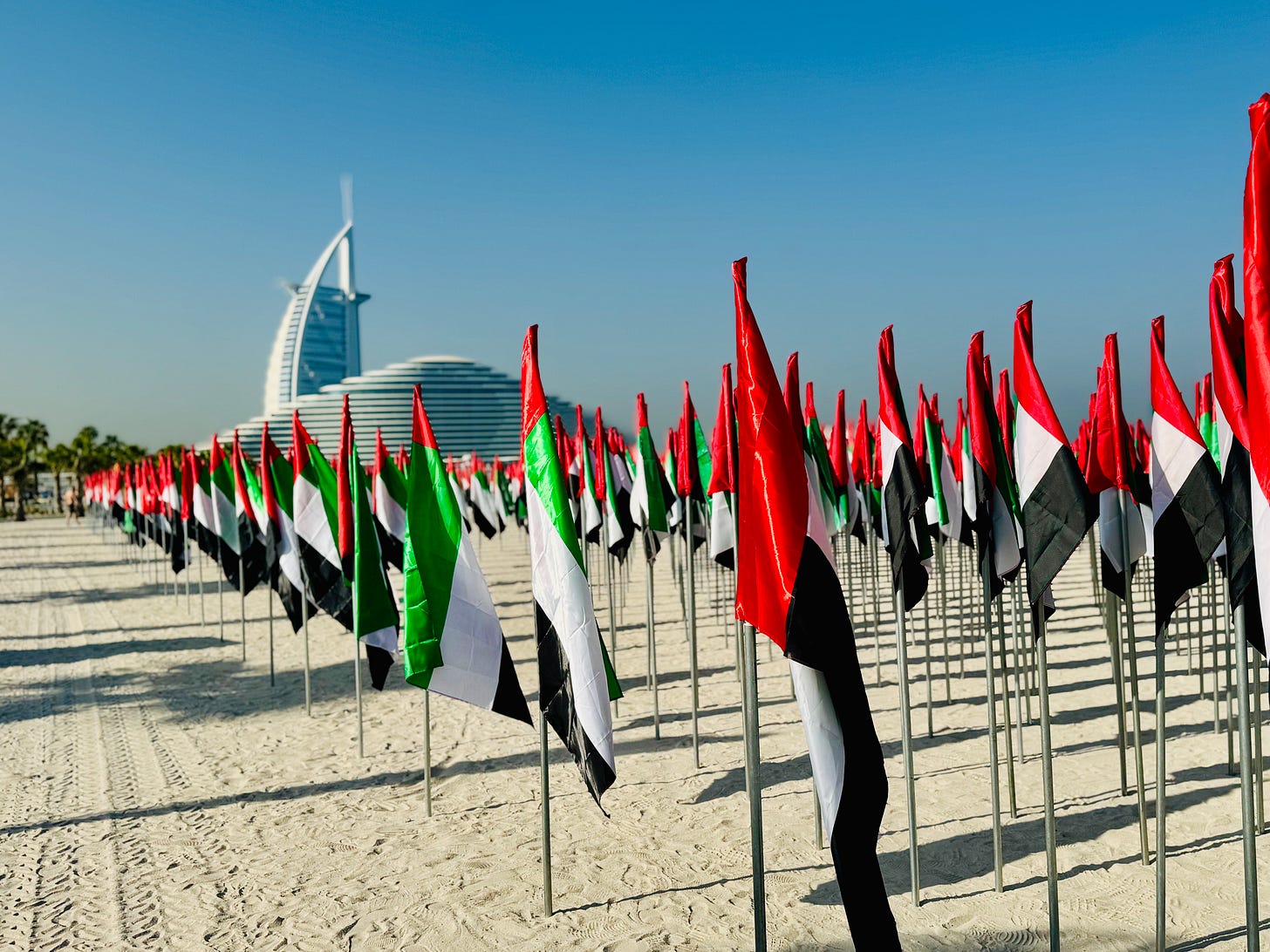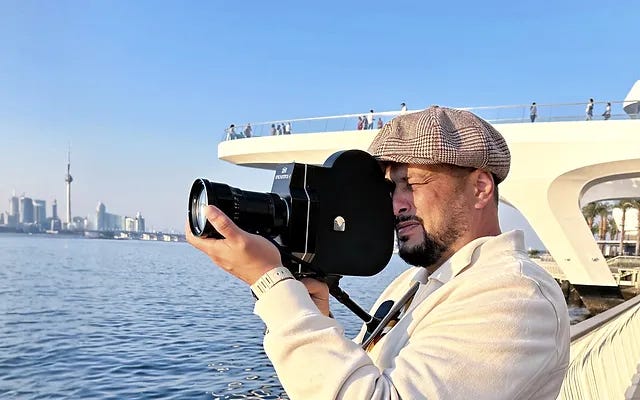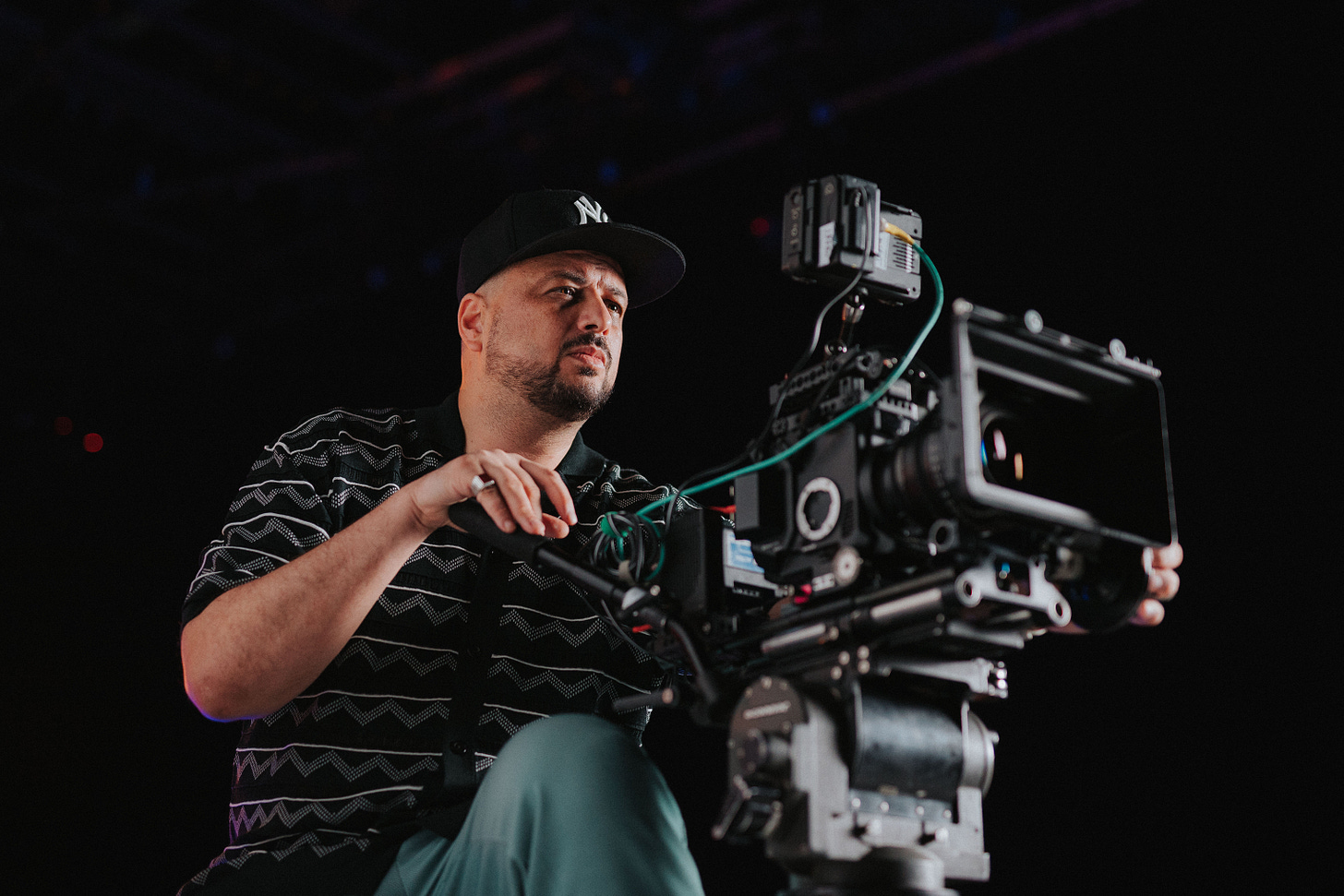The Art of Local Storytelling in MENA: Insights from an Award-Winning Screenwriter & Director
Why telling stories that reflect local cultures really matters
Hey streamers 👋
Today, I’ll show you why creating authentic local content is so important for the future of streaming media in MENA.
Whether you’ve been reading my newsletter for years or just discovered it recently, you know I focus on one thing: streaming in MENA.
But what you might not know is my mission: to support the local streaming media industry.
That’s why I’ve decided to share the voices of those transforming the local film production.
Kicking off this “Local MENA stories” is Philip Jamal Rachid, an Iraqi-Kurdish director with international acclaim. He has written, produced, and directed for major names like Endemol and MTV, collaborating with Grammy, Emmy, and Oscar-nominated teams.
Since moving to the UAE 13 years ago, his short films have won over a dozen awards across motorsport, thriller, humanitarian, and documentary categories.
His mission is also clear: “Raising awareness about the local cultures and showcase them on a global scale, through media.”
The conversation with Philip will be a “trilogy”. Today, he shares his insights on the importance of telling stories that reflects local cultures.
Next, he will address the challenges of producing local films, and finally we will share together our perspectives on why MENA streamers must invest in authentic local content.
Discover Philip’s inspiring journey on Instagram and learn more about his award winning Boutique Film Studio Soultrotter.
Today’s program
Preserving cultural heritage and challenging stereotypes
Empowering local voices and showcasing a diverse identity
A powerful tool for dialogue and peacebuilding
And… Action!
↓ The following insights come from Philip.
The Middle East is one of the most historically rich and culturally diverse regions in the world, often referred to as the cradle of civilization. Sharing stories of its local cultures is not just an artistic endeavor but a vital act of preservation, education, and celebration.
These narratives hold the power to bridge the gap between the past and the present, fostering greater global understanding while empowering local communities.
Preserving cultural heritage and challenging stereotypes
For me, one of the most compelling reasons to tell these stories is to preserve cultural heritage.
The Middle East is home to ancient civilizations, including the Mesopotamians, Persians, and Nabataeans, whose influence is still felt in language, art, and traditions. By capturing and sharing these narratives, we protect traditions and practices that are at risk of fading in today’s globalized world.
“Storytelling acts as a living archive, ensuring future generations inherit the wisdom and identity of their ancestors” - Philip Jamal Rachid, Founder, Soultrotter.
In ancient times we had oral stories, which then were written on to clay and stone tablets and later into books. But now we live in a visual era, where stories through quality films are more important than ever.
I mean, think about it. An epic film like Lion Of The Desert, for example was released in 1980 and is still being watched. Storytelling acts as a living archive, ensuring future generations inherit the wisdom and identity of their ancestors.
Equally important is the ability of stories to promote understanding and break stereotypes.
The Middle East is often misunderstood, with its people and cultures reduced to simplistic or negative portrayals. Sharing local stories reveals the complexities, values, and humanity of the region, fostering empathy and challenging misconceptions.
“As an Iraqi Kurdish Bulgarian growing up in Amsterdam, identity has always been one of my main themes in my projects” - Philip Jamal Rachid, Founder, Soultrotter.
These narratives offer a window into the lives of people who are often marginalized in global discussions, showing the richness of their cultures and the resilience of their communities.
As an Iraqi Kurdish Bulgarian growing up in Amsterdam, identity has always been one of my main themes in my projects. Questioning myself where do I belong? And how come there is no representation of any one looking like me in the film and media world?
Especially when I was just getting in to this artistic realm in the late 90’s. And if a Middle Eastern Character was portrait, it often was in the form of a terrorist or rich Arab. That is when I made it my goal to be that person to change the narrative and became one of the first mainstream main characters on Dutch TV and Film from Middle Eastern descent. Nowadays I want to do that from the story telling perspective as well.
Found this article insightful? Don't keep it to yourself, share it with your team and start the conversation!
Empowering local voices and showcasing a diverse identity
Empowering local voices is another critical aspect of storytelling.
When Middle Eastern communities tell their own stories, they reclaim their narratives from external interpretations. This empowerment fosters a sense of pride and ownership, inspiring creativity and self-expression. Local storytellers become ambassadors of their heritage, contributing authentic perspectives that resonate both locally and globally.
When I moved to the United Arab Emirates in 2012, I committed myself to crafting authentic stories rooted in local perspectives, presented with international quality and through the lens of genre filmmaking.
“When Middle Eastern communities tell their own stories, they reclaim their narratives from external interpretations” - Philip Jamal Rachid, Founder, Soultrotter.
The Middle East’s diversity is one of its greatest assets, and sharing stories allows us to celebrate this multifaceted identity.
From the Bedouin traditions of the Arabian Peninsula to the Kurdish folklore of the Zagros Mountains, every region offers unique tales that highlight the variety of languages, customs, and histories. This celebration not only enriches the region’s collective identity but also educates outsiders about its remarkable heterogeneity.
The Middle East’s diversity is one of its greatest assets, and sharing stories allows us to celebrate this multifaceted identity - Philip Jamal Rachid, Founder, Soultrotter.
By connecting ancient traditions with contemporary realities, storytelling can bridge the past and present. These stories show how the Middle East history shapes its modern societies, offering insights into how traditions have evolved over centuries.
This connection helps communities remain rooted in their heritage while navigating the challenges of modernity. And this is what you will find back in my productions, where I use modern society, topics and tools to connect generations and cultures.
A powerful tool for dialogue and peacebuilding
In a region often marked by conflict, Film is for me the best tool for dialogue and peacebuilding.
Narratives that emphasize shared human experiences, such as love, resilience, and the pursuit of freedom, self empowerment, highlight commonalities that transcend divisions.
“In a region often marked by conflict, Film is for me the best tool for dialogue and peacebuilding” - Philip Jamal Rachid, Founder, Soultrotter.
These stories foster unity and encourage mutual respect, both within the region and beyond.
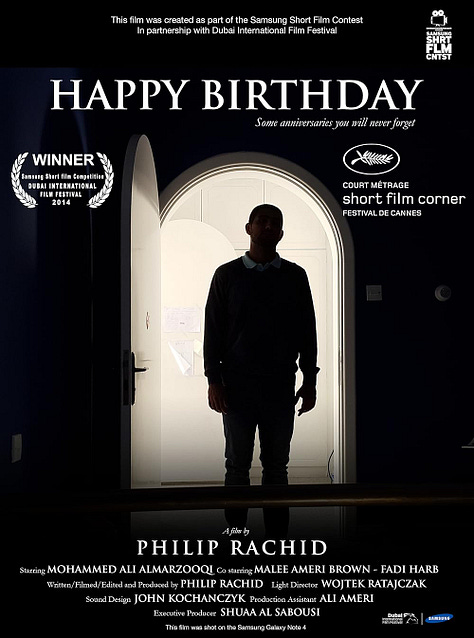
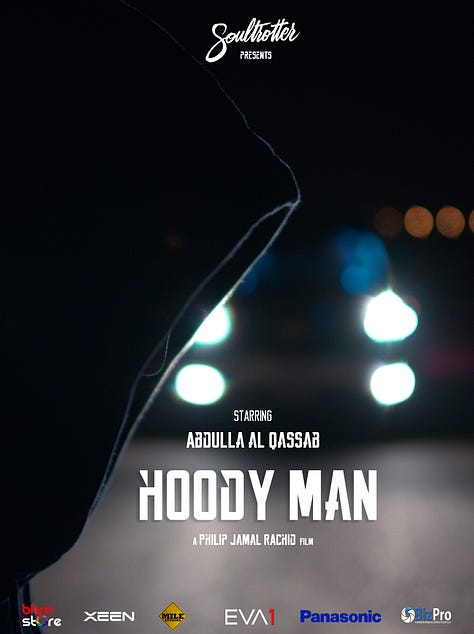




Lastly, cultural storytelling fuels global creativity. The myths, traditions, and histories of the Middle East are a treasure trove of inspiration for filmmakers, writers, and artists. Sharing these stories not only enriches global art but also boosts local economies through tourism and cultural initiatives.
“The myths, traditions, and histories of the Middle East are a treasure trove of inspiration for filmmakers, writers, and artists” - Philip Jamal Rachid, Founder, Soultrotter.
In essence, telling long lasting and quality stories of the Middle East’s local cultures preserves its heritage, enriches its communities, and fosters global understanding. These narratives honor the past while inspiring a more inclusive and creative future.
That’s all for today, the first article of my “Local MENA stories” in collaboration with Philip Jamal Rachid. If you found this breakdown valuable, spread the word and share it with your network!
I hope everyone has a great week, see you online next Monday. In the meantime enjoy Unstoppable on STARZ ON. Driven by passion, young Arab players face intense trials for the ultimate reward - a chance to train with Italy’s football greats in an inspiring competition. Don’t miss the new episodes every Thursday!
Master Streaming in MENA with exclusive data & analysis for streaming media professionals. Subscribe to TLS+:
Read all the previous edition of The Streaming Lab here.
Download my latest report, STREAMING in MENA - August 2024. Exclusively available to TSL+ Prime members!
Interested in advertising with The Streaming Lab and reach a qualified audience in MENA? Email me.




